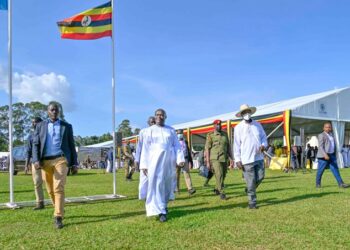The announcement of the Akii Bua Olympic Stadium’s construction in Lira City, a tribute to Uganda’s first Olympic gold medalist, John Akii Bua, has reignited the age-old debate on the priorities of Uganda’s government. While the glitz of a $200 million (UGX 730 billion) project promises to bring grandeur to the north, this grandiose endeavor reeks of political expediency and misguided priorities rather than genuine commitment to national development.
The project, first announced in 2008, lay dormant for over a decade, only to be resurrected now as Uganda gears up to co-host the 2027 Africa Cup of Nations (AFCON). Convenient timing, isn’t it? The government’s sudden sense of urgency raises critical questions: Is this about honouring a national hero or simply a smokescreen to distract Ugandans from the rampant mismanagement, corruption, and institutional failures plaguing the nation?
Hosting AFCON 2027 alongside Kenya and Tanzania is undoubtedly historic. However, the Confederation of African Football (CAF)’s stringent demands for three standard stadiums have reduced Uganda’s leadership to frantic puppets scrambling to meet the bare minimum. Instead of gradual infrastructure development over the years, they are now racing against time, likely sacrificing quality in the process. How much of this $200 million will line the pockets of cronies, as seen in countless other projects? History suggests Ugandans should brace themselves for cost overruns, delays, and shoddy work cloaked in hollow justifications.
For Northern Uganda, the Akii Bua Stadium is a symbolic bone tossed to a region long neglected by Kampala’s power brokers. The scars of war and economic marginalization linger in Lira, yet the government’s solution is to erect a stadium rather than address systemic issues like poverty, unemployment, and lack of basic infrastructure. Building a 30,000-seat stadium in a city where most residents can barely afford a ticket feels more like a slap in the face than a step toward progress.
The stadium is touted as a beacon for sports development, but history suggests otherwise. Uganda’s existing stadiums—Namboole and Nakivubo—have become symbols of neglect and decay, showcasing the government’s inability to maintain what it already has. If past performance is any indicator, Akii Bua Stadium will likely follow the same trajectory: a white elephant left to rot after the AFCON fanfare subsides.
Moreover, investing in community sports programs, school competitions, and affordable facilities would do far more to nurture talent and build a sports culture than this ostentatious project. But such grassroots efforts lack the photo-op appeal that politicians crave.
Uganda’s economy is teetering, with public hospitals understaffed, schools crumbling, and citizens grappling with skyrocketing prices. Allocating $200 million to stadiums while critical sectors languish is not just tone-deaf; it is criminal. This government’s priorities are a tragic mockery of leadership, driven more by vanity and political posturing than by the genuine needs of its people.
In the end, the Akii Bua Stadium will stand as a glittering monument to misplaced priorities—a costly façade masking the hollow core of Uganda’s governance.







Discussion about this post